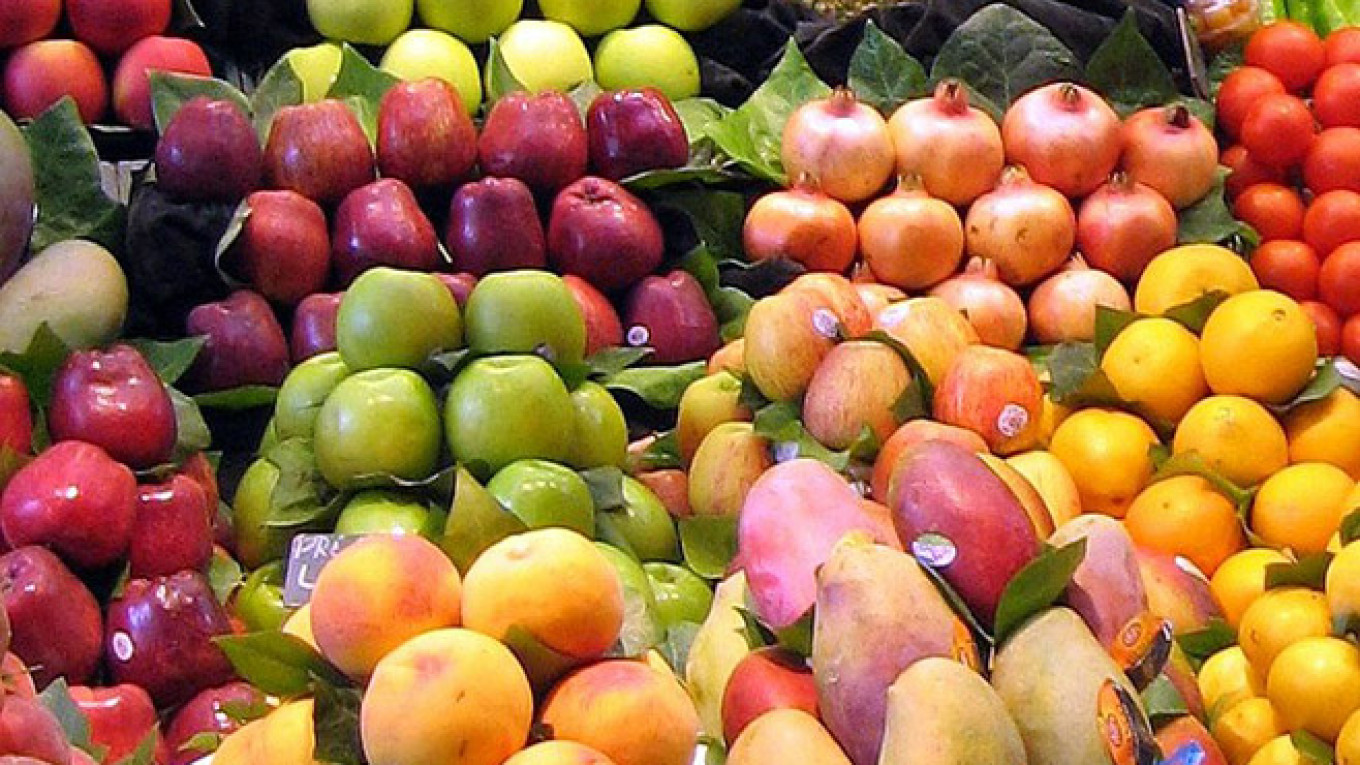Russia's state food safety watchdog said Monday that it was considering restricting all or some European Union fruit imports, mainly from Eastern Europe, as the number of imports Russia has banned amid political tensions continues to rise.
The statement came hours after The Hague's arbitration court ruled that Russia must pay more than $50 billion for expropriating the assets of the now-defunct oil producer Yukos, potentially a big hit for the country's economy.
"Our experts will make a decision [on fruit imports] in a week or two," Alexei Alexeyenko, a spokesman for the Federal Veterinary and? Phytosanitary Inspection Service, told Reuters, adding that the move was linked to a lack of phytosanitary controls.
He declined to name the countries whose supplies could be hit, but said "first of all it is an issue for Eastern Europe." The largest fruit suppliers to Russia include Poland, Moldova and the Netherlands, he added.
The move follows a series of earlier bans that Russia has imposed over recent months amid fraught relations with former Soviet republics that have eschewed close ties with Moscow in favor of European integration.
Moldova, Georgia and Ukraine all signed association agreements with the EU earlier this year. Moldova, whose parliament was the first to ratify the agreement in early July, was struck with bans on fruit and preserves imports shortly after.
A ban on Ukrainian dairy imports went into effect on Monday, to be followed Tuesday with a ban on imports of food and vegetable preserves. Alexeyenko told RIA Novosti last week that Russia may completely halt food imports from Ukraine for as long as the country's negotiations on integration with the EU continue.
The U.S., which has become one of the harshest critics of Russia's actions in Ukraine, may soon also fell prey to food bans. U.S. fast food giant McDonald's has come under the watchdog's scrutiny, and on Monday the watchdog's head Sergei Dankvert told Interfax that all poultry imports from the U.S. could potentially be halted.
Material from Reuters is included in this report.
See also:
A Message from The Moscow Times:
Dear readers,
We are facing unprecedented challenges. Russia's Prosecutor General's Office has designated The Moscow Times as an "undesirable" organization, criminalizing our work and putting our staff at risk of prosecution. This follows our earlier unjust labeling as a "foreign agent."
These actions are direct attempts to silence independent journalism in Russia. The authorities claim our work "discredits the decisions of the Russian leadership." We see things differently: we strive to provide accurate, unbiased reporting on Russia.
We, the journalists of The Moscow Times, refuse to be silenced. But to continue our work, we need your help.
Your support, no matter how small, makes a world of difference. If you can, please support us monthly starting from just $2. It's quick to set up, and every contribution makes a significant impact.
By supporting The Moscow Times, you're defending open, independent journalism in the face of repression. Thank you for standing with us.
Remind me later.


